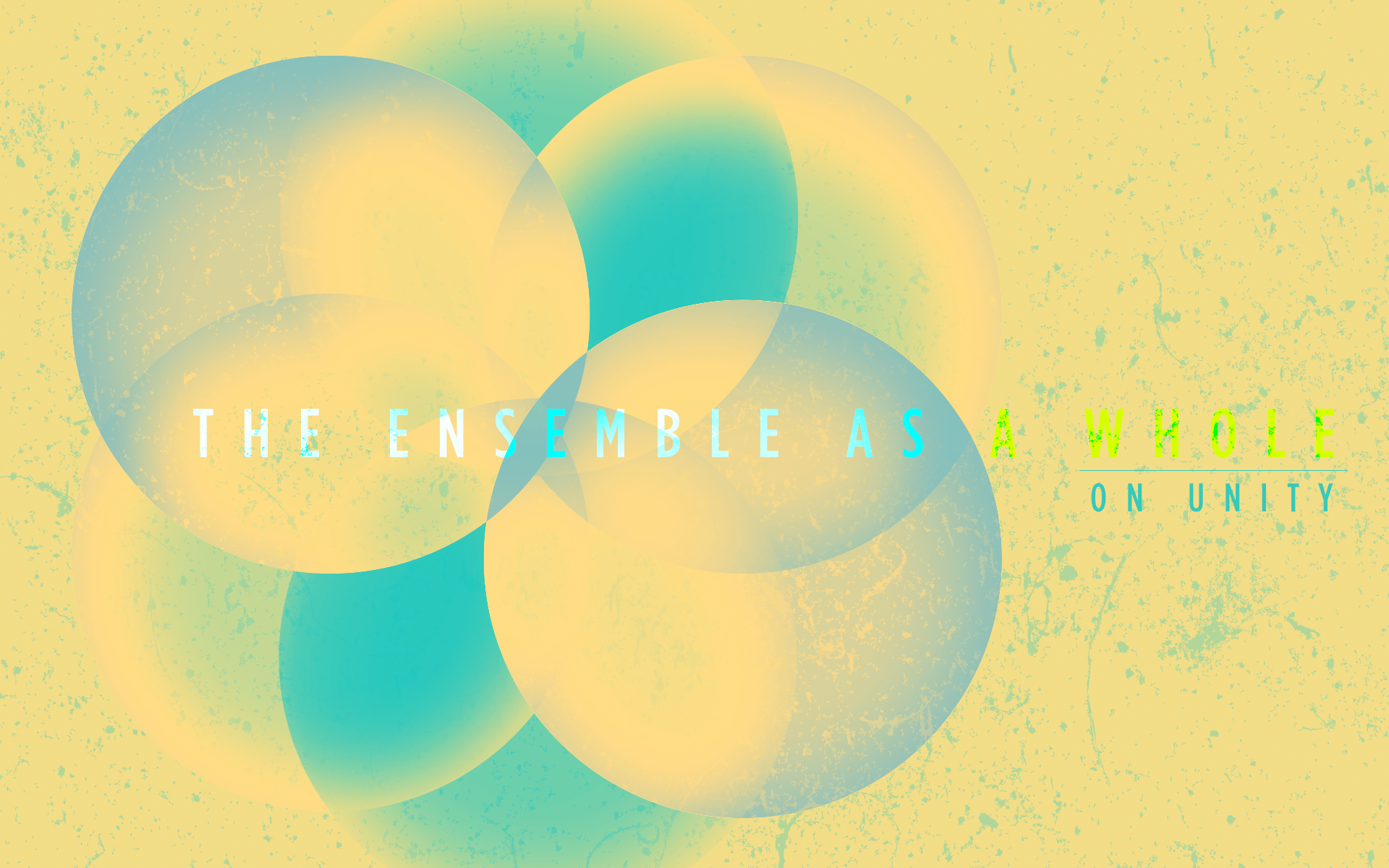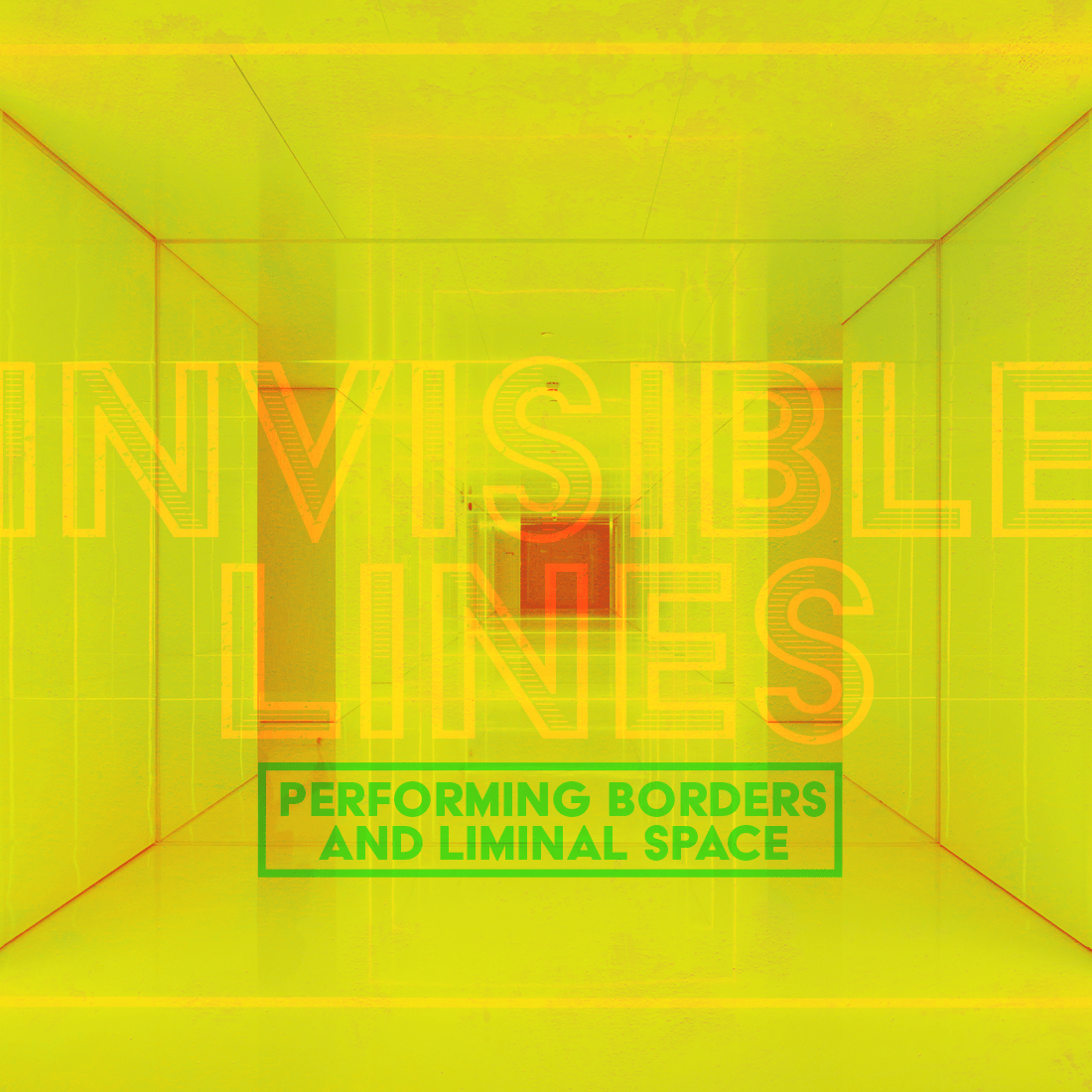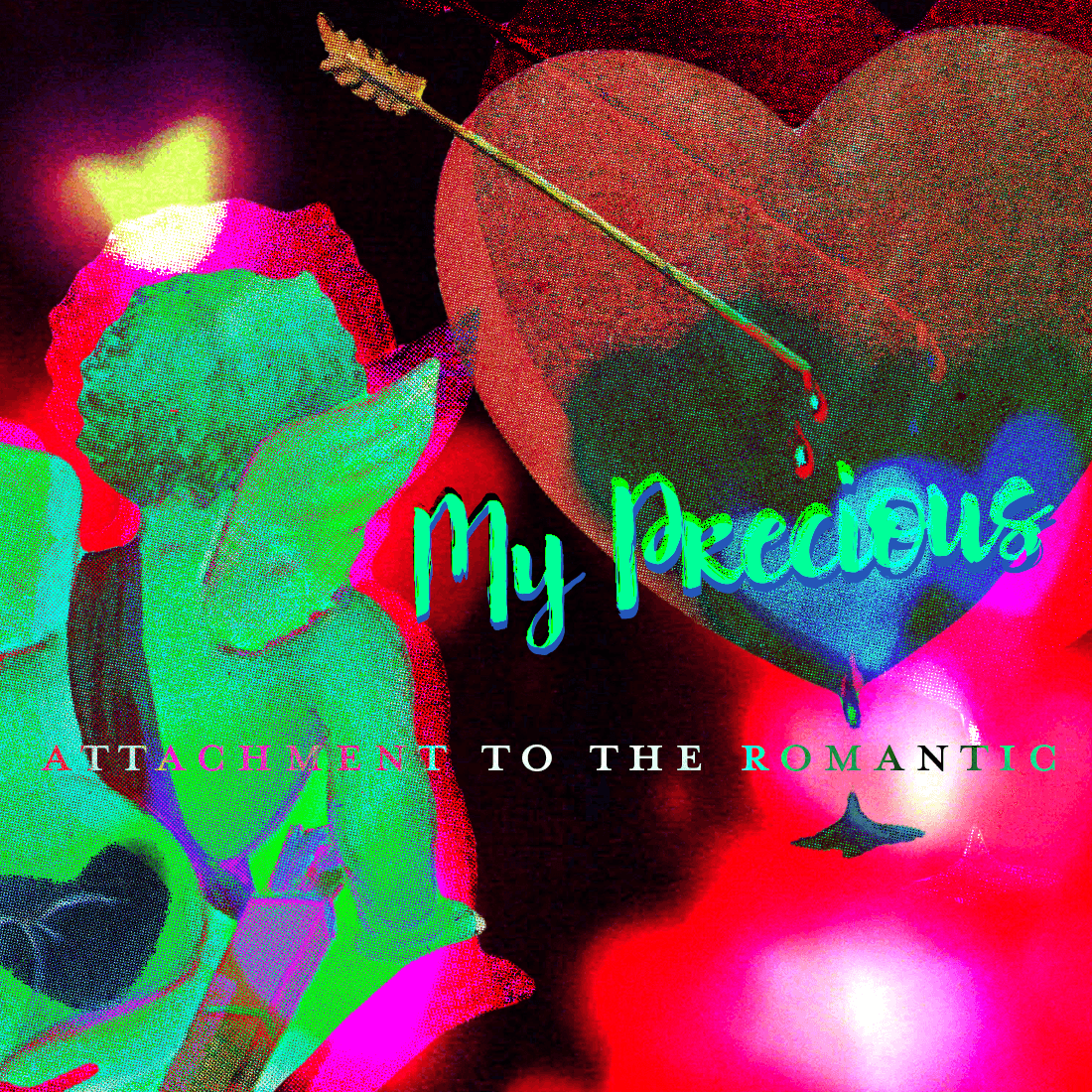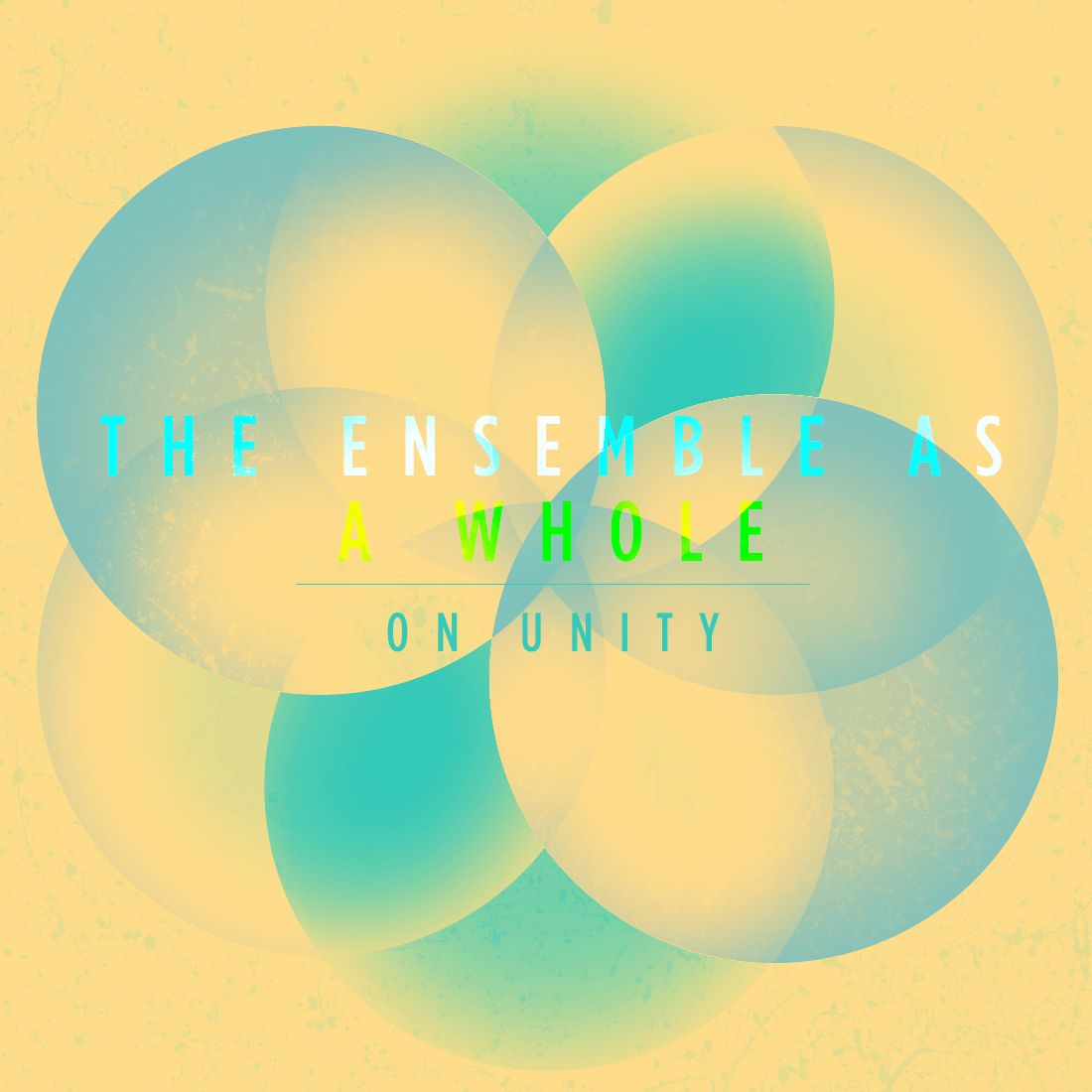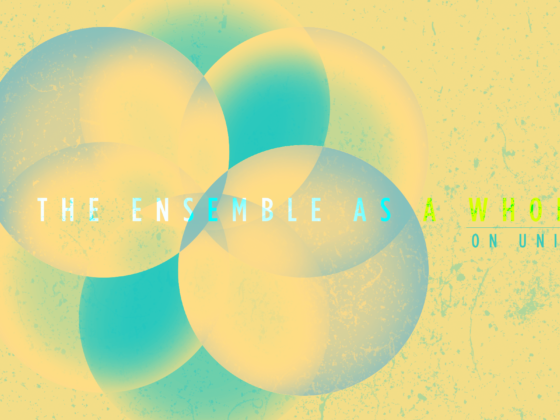SWEDIAN LIE
In two weeks, Europe’s most prestigious footballing competition will get underway in various venues across France. For some countries, it’ll be a long-awaited debut; for others; it’ll be a chance at redemption. Whether you are a player, coach, staff, or mere spectator, Euro 2016 is the ultimate stage for some of the Europe’s best footballing talent to not only showcase their incredible skills but also do so in the name of their beloved nations.
That said, Euro 2016 is not just about letting the likes of Cristiano Ronaldo or Zlatan Ibrahimovic strut their shiny soccer boots on international turf; it is also an opportunity for the proponents of Europe as a concept — such as UEFA, the European footballing body in charge of Euro 2016 — to show and perform their vision of continental unity via the universal language of football. Yet in this competition among nations — where many (if not all) pride themselves in identities rooted in national rather than continental allegiances — will Euro 2016 reveal more about the performance of national unity versus its continental counterpart?
Let’s first begin with the basics — who’s actually participating in Euro 2016:
[Editor’s note: in the maps below, Crimea is recognized as part of Ukraine, not part of Russia]
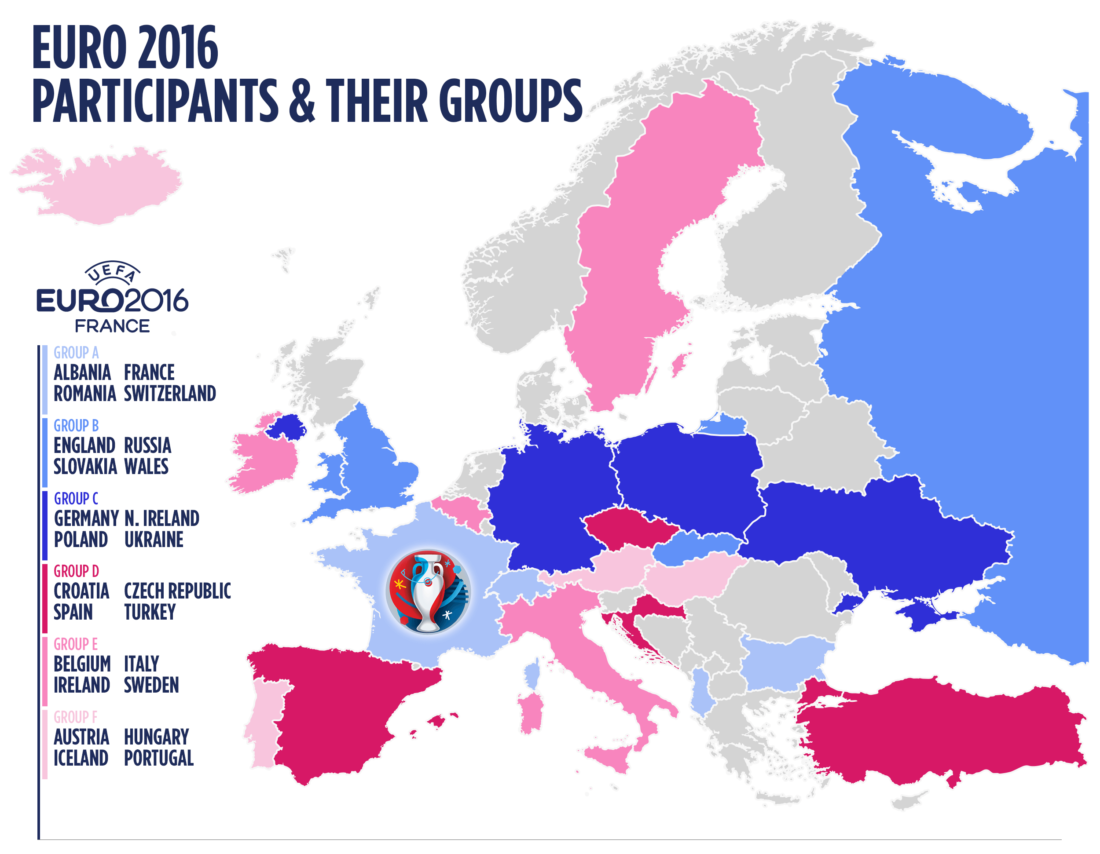
Out of 53 countries, 23 emerged out of a year-long qualification process to continue their quest for European glory, with France automatically qualifying as the host nation. In the bunch are World Cup-holders Germany — looking to “do a Spain” and win two international competitions in a row — as well as debutantes to the international footballing stage, Albania and Iceland.

Out of the 53 countries that competed for qualification, 28 are part of the European Union. Of the 24 teams that are participating in Euro 2016, 6 countries are non-EU countries: the aforementioned pair of Albania and Iceland, Russia, Switzerland, Turkey, and Ukraine.
This is perhaps a good time to consider the origins of the European Union, the great symbol of European continental unity. Founded in 1958 by Belgium, France, Italy, Luxembourg, the Netherlands, and West Germany, the EU was created as a response to the extreme nationalism that has ravaged the continent in World War II and prior conflicts. However, in practice, it is much more economically focused, with the creation and maintenance of a customs union a foundational element. As such, present-day membership in the European Union is often driven by economic interest rather than political desire for ensemble camaraderie.
Yet at a time when the Euro is weak and states have needed bailouts from the rest of the Union, more than a few have begun to wonder whether economic continental unity is still worth it. After suspending its application for membership in 2013, Iceland, one of the six non-EU countries in Euro 2016, has decided last year to drop its application for good, while Switzerland, ever the neutral, is smack dab in the middle of the EU and still refuses to join (although this might be less about political neutrality than fear of regulatory clampdown on its notoriously secretive financial atmosphere; just ask FIFA). Continental unity by way of the European Union is no longer as attractive as it once was.
What about national unity?
“The formation of any national team is a reflection of national identity: who and what your nation represents. Competition between those teams, while supposedly meant as a celebration of multinational cooperations, typically plays out as a way to determine national bragging rights. In other words, war by peaceful means.”
– Stephen Skiles
In the book Exploring the Cultural, Ideological and Economic Legacies of Euro 2012, authors Peter Kennedy and Christos Kassimeris described the performance of national unity on the football pitch as the “exemplifying [of] group charisma,” whereby the eleven players playing are — whether consciously or not — performing some rendition of a communal identity. The question thus becomes whether that identity promotes or prevents unity.
The Albanians: Unity in Diaspora
During the 1990s, following the fall of the Soviet Union and European communism, many former communist states had to rebuild their nations, often at a heavy & bloody cost, and Albania was certainly one of them. Years of corrupt governance and conflict via the Kosovo War led to many Albanians leaving their homelands for better & safer futures. As a result, there is now a huge Albanian diaspora all over Europe — many of whom form the current national football team, with more than half of the squad born outside of Albania.

When Albania made it through to Euro 2016, Albanians across Europe rejoiced at the prospects of seeing their home nation represented in Europe’s most prestigious footballing event, even if they no longer live in Albania. For these individuals (and communities), the performance of their group charisma — of their national unity — goes beyond the borders of Albania. The wearing of the iconic Albanian red-and-black — by spectators and by players — is as symbolic and unifying as waving the red-and-black Albanian flag. Albanian national identity is performed every time the eleven players step onto the green grass and start playing the global game against other nations — and national unity is performed every time an Albanian watches that game.
“We have a flag and a people. It goes beyond borders because Albanians are everywhere with their enthusiasm and love for the motherland.”
– Gianni Di Biasi, coach of the Albanian national team
In this continent of often tenuous relationships — especially amongst the former Yugoslav states — those eleven players and the thousands that support them, all decked out in red and black, are performing a resounding show of national unity the likes of which their own country rarely see.
The Russians: For Russkies Only (Or if You’re a Good Brazilian)
In contrast with the Albanians, Russia does not need to or want to go beyond its borders in search of footballers. Despite the recent trend towards naturalizatsiya — giving non-Russians citizenship in order to “naturalize” them and make them available for selection for the Russian national team — nearly everyone in the provisional squad for Euro 2016 was born in Russia and/or of Russian descent (“Russkies”). The sole exception is Guilherme, a Brazilian goalkeeper (now naturalized Russian citizen) who has played in Russia for almost a decade and speaks Russian.
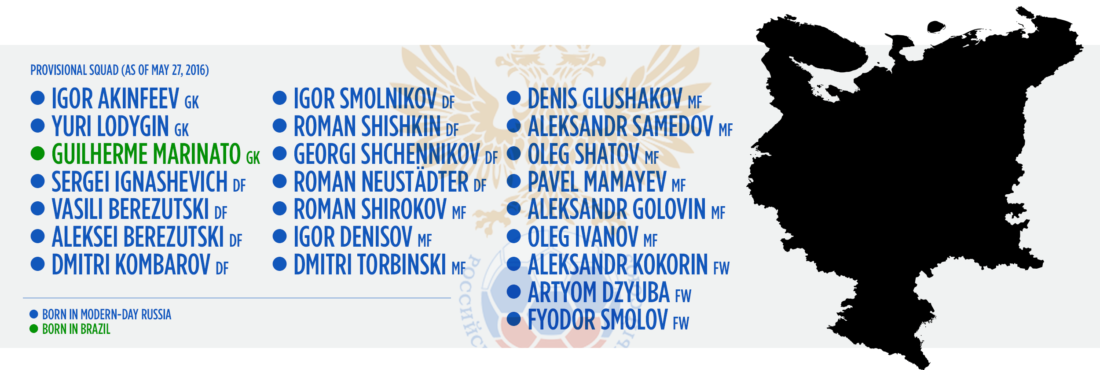
But Guilherme has his detractors. Those opposing naturalization argue that it diminishes and cheapens the meaning of Russian citizenship & national identity. Some even go as far as making downright xenophobic, verging on racist, arguments, suggesting that only ethnic Russians can play for Russia.
“I have a negative view of naturalization. Many say they do this in Europe — but there’s a lot they do in Europe that we don’t understand […] When the Russian national anthem is playing you have to feel it deeply. I can’t imagine how a player from another country listens to our national anthem — his heart doesn’t skip a beat.”
– Artyom Dzyuba, Russian footballer
In either case, whether for or against naturalization, one can see that the desire to improve the Russian national team has brought up the prickly question of national identity and who gets to perform said identity. Should it be the Putin-supporting Russkie or the long-serving Russian-speaking Brazilian? At what point does the performance of group charisma slips into group arrogance and prevents unity?
It’s Only a Game… Or is it?
“Wondering whether Euro 2016 must be cancelled is playing the game of the terrorists.”
– Euro 2016 organizer Jacques Lambert
Following the deadly terrorist attacks in Paris in late 2015 as well as this year’s suicide bombings in Istanbul and the airport bombings in Brussels (plus countless other less-publicized examples), there was a legitimate question over whether Euro 2016 should still happen in France. But within a few days of the Paris attacks, organizers sought to assuage any fears and express a strong commitment to safety, security, and — in the face of global threats — continental unity against the terrorists. In spite of all the concerns about whether European union as a concept is still desirable, perhaps right now more than ever a show of strength is necessary. To echo the words of Didier Deschamps, coach of the French national football team, “Sport knows no colour, no religion. All are welcome in sport — it brings people together, unifies them.”
“For the organizers of international competitions like UEFA, sport potentially represents a depoliticized autonomous field of universal interdependency between nations, where all that matters is the game itself being played within certain limits of approved conduct.”
– Exploring the Cultural, Ideological and Economic Legacies of Euro 2012
This concept of “universal interdependency” will be on full display come June 10 as national teams descend upon France to begin “celebrating the art of football,” and the question of whether to perform national unity or continental unity is put aside for the moment because for at least 2 weeks, these nations and their footballers can and must perform both — at a time when Europe really needs them to.

